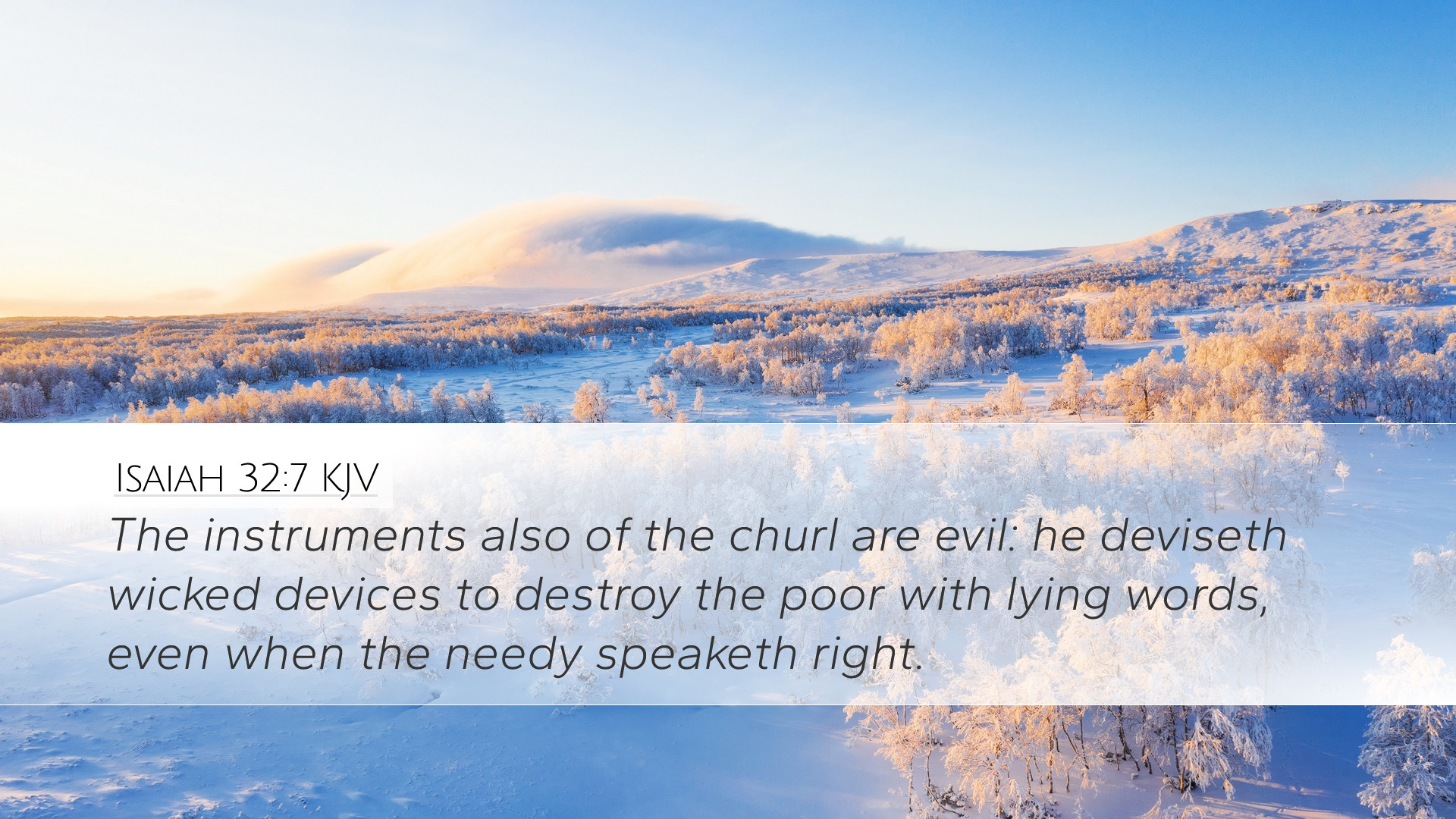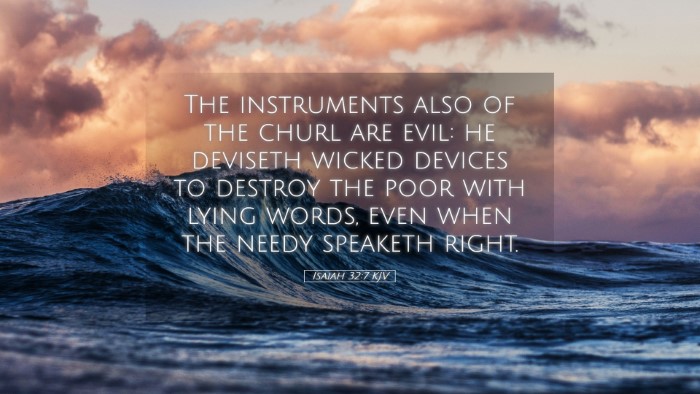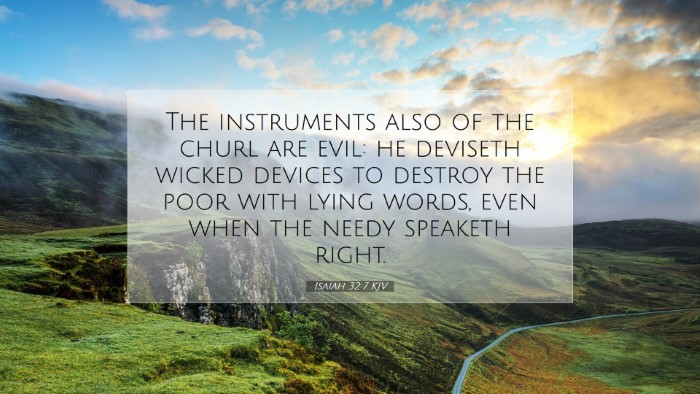Commentary on Isaiah 32:7
Isaiah 32:7 states: "The instruments also of the churl are evil: he deviseth wicked devices to destroy the poor with lying words, even when the needy speaketh right."
Introduction
This verse from Isaiah provides a profound insight into the nature of deceitful practices among the powerful and their impact on the vulnerable. Through the lens of Biblical scholars like Matthew Henry, Albert Barnes, and Adam Clarke, we can explore the layers of meaning embedded within this text.
Background Context
Isaiah, a prophet during a period of great upheaval in Judah, often spoke against social injustices and the moral decay of his time. Chapter 32 addresses the eventual establishment of a just kingdom under the reign of the righteous king, but it contrasts this hope with the current state of corruption.
The Nature of the 'Churl'
Matthew Henry describes the term 'churl' as referring to a selfish and greedy man. Such individuals, often in positions of power, are characterized by their evil machinations.
- Deceitfulness: The 'instruments of the churl' are described as evil, highlighting the morally corrupt tools they employ to manipulate and oppress.
- Wicked Devices: The churl devises wicked devices, a testament to premeditated wickedness aimed at the disenfranchised.
The Oppression of the Poor
Albert Barnes emphasizes that such individuals, in their greed, seek to 'destroy the poor with lying words.' This indicates a systematic oppression where truth is distorted for personal gain.
- Verbal Manipulation: The use of 'lying words' demonstrates the power of speech and how it can be weaponized against those who are vulnerable.
- Neglect of Justice: The needy, described as those who 'speaketh right', are often ignored or silenced in their quest for justice.
Spiritual Significance
Adam Clarke brings attention to the spiritual dimension of this verse, emphasizing that the practices of the churl not only affect social order but also reflect a deeper moral failing.
- Divine Justice: God's concern for the poor is heavily underscored in scripture, showcasing His role as the ultimate judge who sees their plight.
- Moral Responsibility: The verse challenges believers to recognize their moral duties towards the less fortunate and to hold powerful figures accountable.
Applications for Today
As we reflect on Isaiah 32:7, several applications arise for contemporary believers:
- Advocacy for Justice: There is a call to advocate for the marginalized and challenge systems that perpetuate inequity.
- Truth in Communication: As followers of Christ, the importance of truthful communication is paramount. We are urged to speak for those who cannot.
- Confronting Corruption: Churches and leaders are called to confront corruption and social injustices that reflect the characteristics of the churl.
Closing Thoughts
Isaiah 32:7 serves as a poignant reminder about the consequences of unchecked greed and the power of words. The collective insights from Matthew Henry, Albert Barnes, and Adam Clarke challenge us to navigate our social responsibilities with authenticity and compassion. As we engage with this scripture, let us commit to being advocates for the helpless and upholders of truth in an increasingly complex world.


